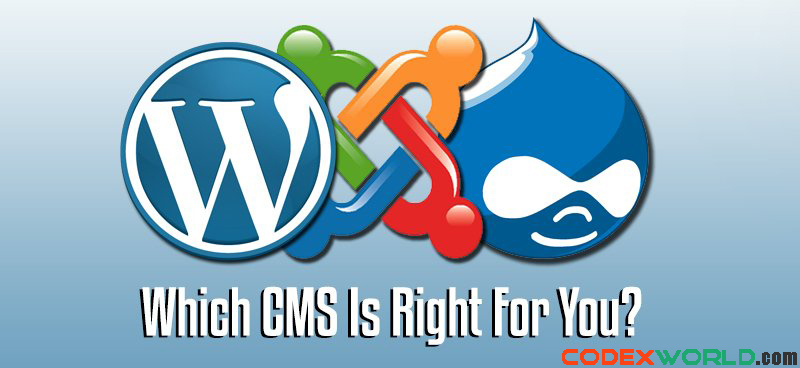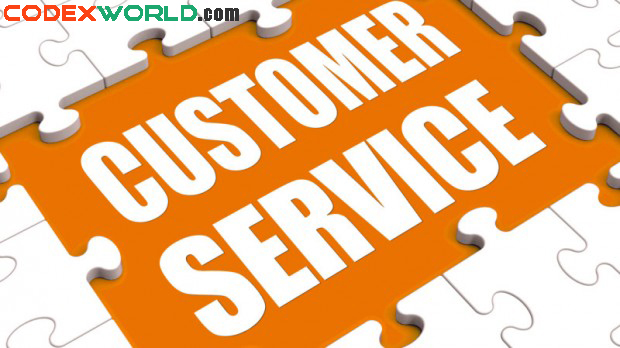close

Do you want to build a robust website without trapping into the entanglement of coding and technical aspects? Then you have three secured options in your hands WordPress, Joomla, and Drupal. They all developed and maintained by thousands of great developers and were continuously improved to leverage new technologies. They all are well integrated with social media, SEO tactics and possess utmost features.
They all are incredible systems and can create a website quickly. But it’s hard to choose the best Content Management system that can best suit your requirement?
Drupal
Drupal is a free, open-source software that can be well used by users who does not possess technical knowledge of website development. It helps to create and manage many types of sites like blogs, portal, forums, e-commerce sites, intranet, social networking sites, directories, etc.
Joomla
Joomla is also one of the excellent website development and content management platform. It is an award-winning website software and carries easily to use features. It manages content on the web in PHP language and uses a MySQL database to store content. It is utilized for any sites and supports various functions of the websites. You can build a website with an online web store, directories portal, customer service system, membership sites or even a blog site. It is highly extensible and is supported by thousands of extensions.
WordPress
WordPress is an online, open-sourced tool written in PHP. It is currently the fastest growing CMS software. There are a plethora of companies who are using WordPress. Many famous bloggers, news agencies, music websites, Fortune 500 businesses and celebrities are using WordPress. Popular blogs like, Tech Crunch, Mashable, are developed on WordPress. News organizations like The New York Times blogs and CNN’s on-air personality blogs are all WordPress users.
WordPress is readily available to download from WordPress.org. It is also supported by the amazing number of plugins which allow extensions of its functionality in various possible ways.

Drupal
Drupal installation is similar to Joomla and WordPress. One can simply download the package and run the installation script. Drupal is bundled with configurations and modules which help to create specific kind of websites. The post installation experience is a bit complicated for Drupal users.
Joomla
Joomla offers little lengthier but similar steps for installation. It provides shared hosting facility also. The user docks on a control panel, after installing Joomla, which is not simple in WordPress. It offers too many menus to click and customize options.
WordPress
WordPress can be installed in five minutes. You can install in just one-click. This makes it comparatively easy for the user especially beginners to get started with their WordPress website. It also offers a different experience altogether in post installing WordPress than Joomla or Drupal. The user goes through a simple, clean interface with the excellent menus to create pages, posts, then customize the appearance and themes.

Drupal
Drupal has lesser availability of themes and modules. Users will have to search for the modules and theme intensely and then install them.
Joomla
Joomla is also supported by templates and extensions, just like WordPress. From creating an e-commerce store to managing email, you have great extensions to do everything. It does not have a feature which allows its user to search for extensions or templates to install from the administration area. It has extensions which allow you can Install as extensions. But for templates, users will have to explore templates manually and then install them by adding their URL.
WordPress
WordPress is supported by few default pre-installed themes, which users can get the themes from official WordPress.org. It changes the appearance of the WordPress website. The real power of WordPress lies in its plugins. There are more than 38,000 free WordPress plugins available on the official WordPress plugin directory.

Drupal
Drupal highly cares for their fans and users. Similar to WordPress and Joomla it is also backed by a very proactive community. It has a support forum, extensive documentation, IRC chatrooms, provision of mailing lists or user groupings. Drupal associates its users with the companies and developers offering professional Drupal services.
Joomla
Joomla is also supported by the large community similar to WordPress. It is supported by extensive documentation which is a powerful resource for fresher’s. Users can join forums, mailing lists, IRC chat rooms, etc. for more interactive support. Apart from community support, there are third party resources and agencies for development which are helpful. Joomla developer or expert can cost more than WordPress developers.
WordPress
WordPress has an active community of users. As a WordPress user, you can get help from official support forums, documents or handbooks, Slack channels, Stock Exchanges, and almost every discussion platform on the web.
Apart from these support options which are free of cost, there are chargeable options to support WordPress as well. You can hire WordPress professionals from around the world from numerous online platforms like Upwork, Fiverr, and Elance to solve a problem quickly for you at very reasonable price.

Drupal
Drupal is highly concerned with security. When it is susceptible about insecurity, it publishes security vulnerabilities on their site. It is misunderstood that Drupal is better secured than Joomla or WordPress because you don’t hear about Drupal sites being attacked by hackers. But the fact is that it is equally secured as the other platforms are.
Joomla
Joomla is equivalent to WordPress when it comes to security. They actively respond to all security vulnerabilities. However, website maintenance and updating the installations are under user control.
WordPress
It is great to know that WordPress is developed in the highly secured codes and quickly responds to the security vulnerability. The auto-update mechanism allows the WordPress websites to update automatically whenever new security patches.
When you start using a platform and after few days you realize that you’ve taken a wrong decision regarding your content management requirement, it is possible to migrate from one to another. Without too much hassle, this can be fairly done. Of course, you have to make sure about the time and expertise available to help you.
You should first assess your technical ability. If you are a business owner irrespective of type, bloggers, amateur or professional, WordPress is a great option for you. If you are expecting a website with extensive features, then Drupal might be ideal. Joomla is beneficial for the ones who are seeking for strong social media features website.
Whereas, according to the expert suggestions, WordPress best fits your requirement if you are looking for maximum flexibility and user-friendliness. And once your website is big enough, you can move to the most robust system, such as Joomla or Drupal. Which is of course not necessary!
Do you want to get implementation help, or enhance the functionality of this script? Click here to Submit Service Request